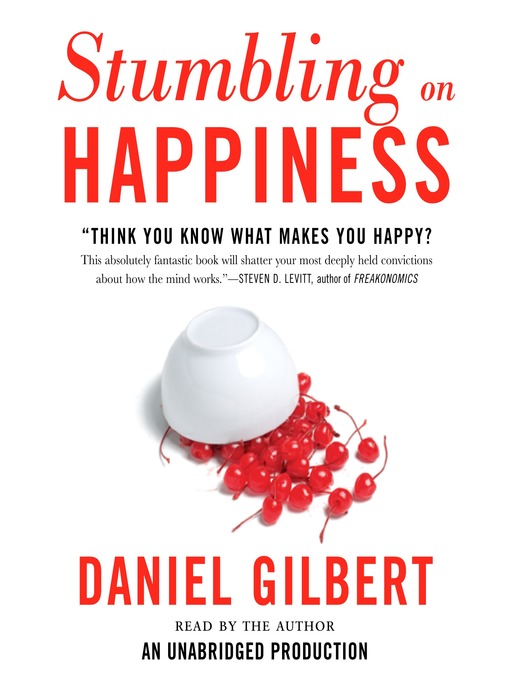
Stumbling on Happiness
کتاب های مرتبط
- اطلاعات
- نقد و بررسی
- دیدگاه کاربران
نقد و بررسی

Humans often fail at predicting what will make them happy in the future. Weaving together information from a variety of scientific and economic sources, psychology professor Gilbert explores why we know so little about the preferences of the people we're about to become. A terrific narrator of his own work, Gilbert revels in sharing his quirky research--he may be an academic, but his writing is witty and accessible, and he sounds like an entertaining acquaintance who's explaining his ideas rather than reading them. This is not a self-help book (how to be happy), but a well-researched explanation of why we think like we do (how we stumble along in our search for happiness). Listeners will come away from this top-notch production both entertained and enlightened. J.C.G. ¥¥¥ (c) AudioFile 2006, Portland, Maine

March 6, 2006
Not offering a self-help book, but instead mounting a scientific explanation of the limitations of the human imagination and how it steers us wrong in our search for happiness, Gilbert, a professor of psychology at Harvard, draws on psychology, cognitive neuroscience, philosophy and behavioral economics to argue that, just as we err in remembering the past, so we err in imagining the future. "Our desire to control is so powerful, and the feeling of being in control so rewarding, that people often act as though they can control the uncontrollable," Gilbert writes, as he reveals how ill-equipped we are to properly preview the future, let alone control it. Unfortunately, he claims, neither personal experience nor cultural wisdom compensates for imagination's shortcomings. In concluding chapters, he discusses the transmission of inaccurate beliefs from one person's mind to another, providing salient examples of universal assumptions about human happiness such as the joys of money and of having children. He concludes with the provocative recommendation that, rather than imagination, we should rely on others as surrogates for our future experience. Gilbert's playful tone and use of commonplace examples render a potentially academic topic accessible and educational, even if his approach is at times overly prescriptive. 150,000 announced first printing.

























دیدگاه کاربران